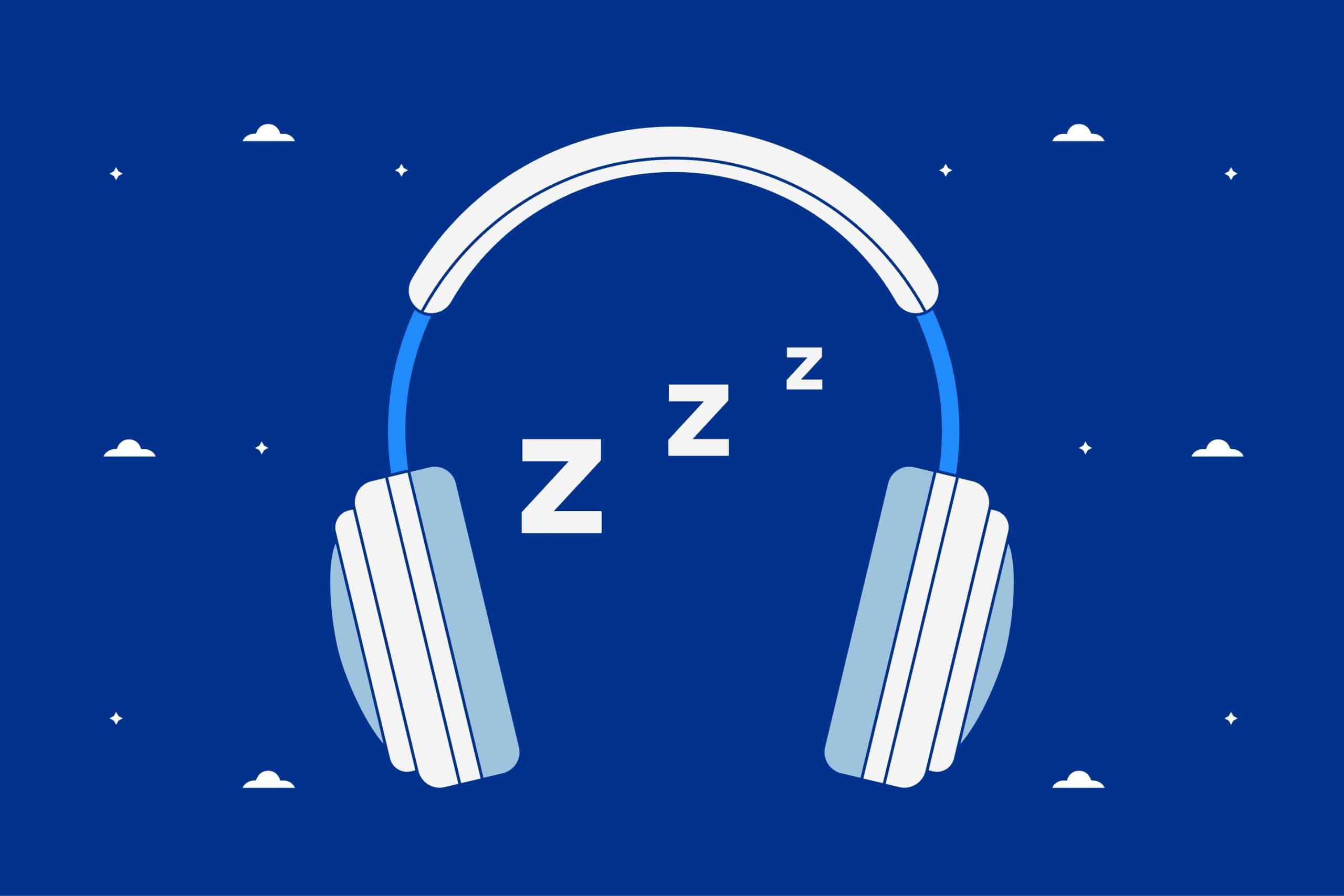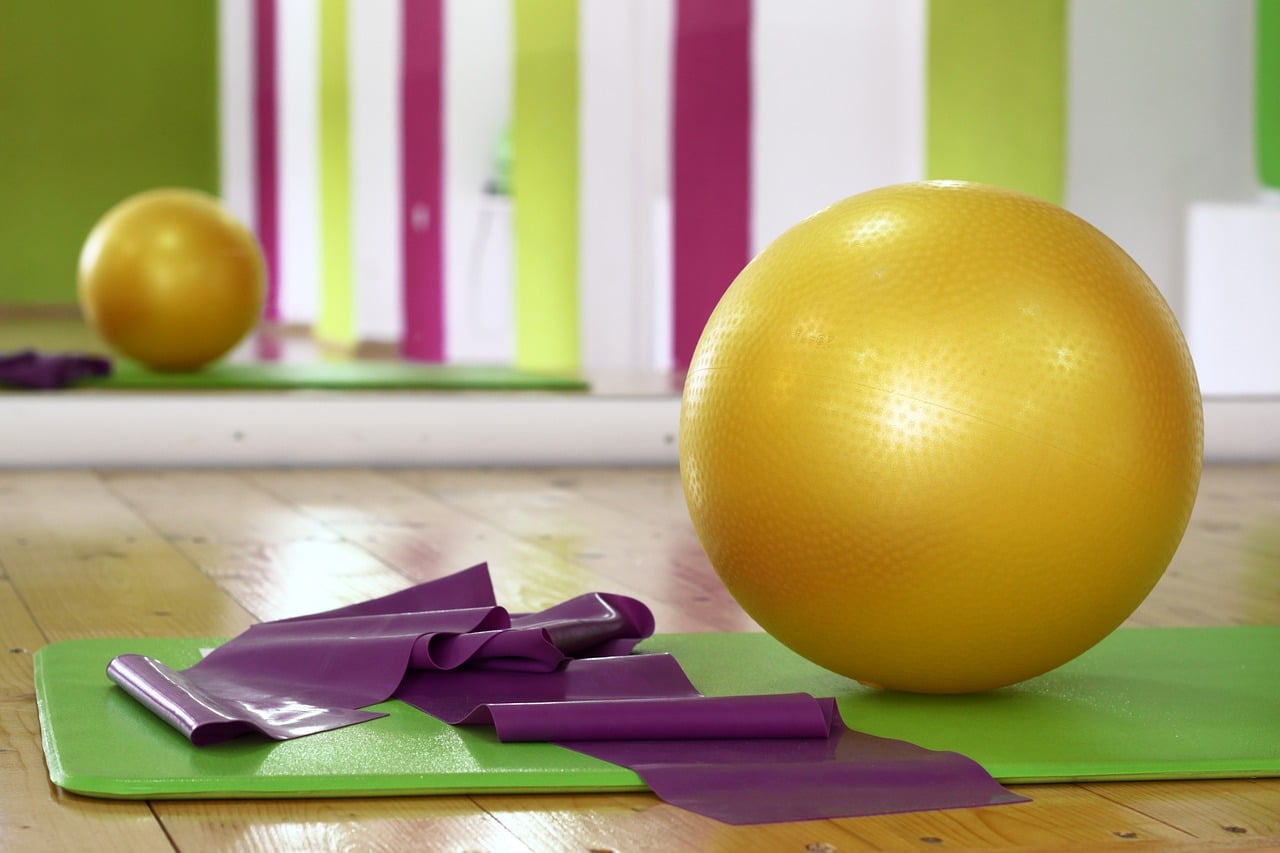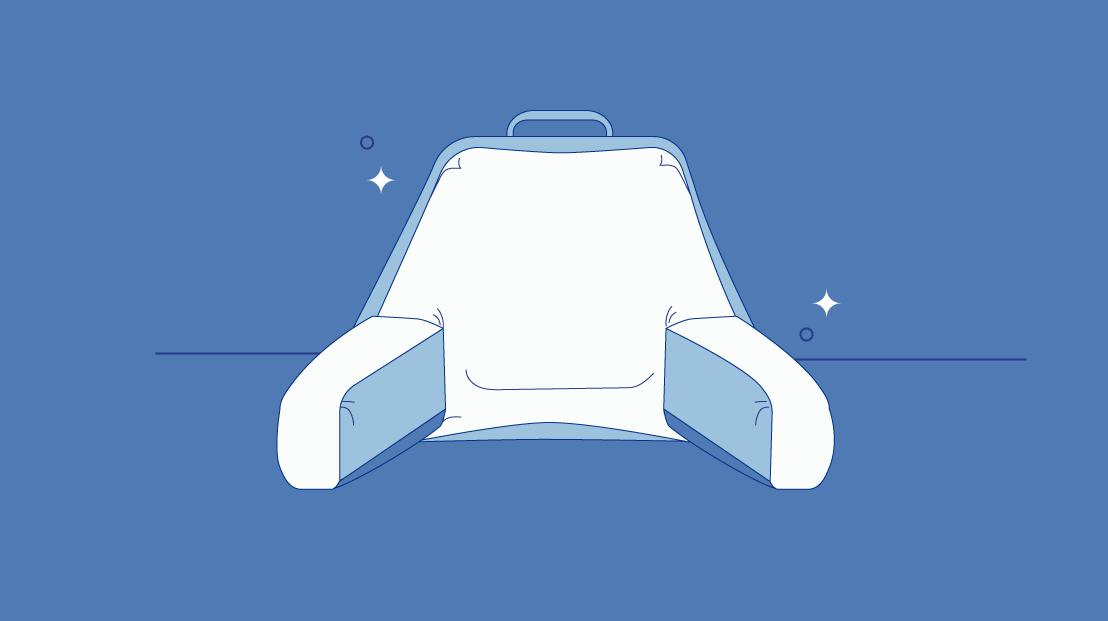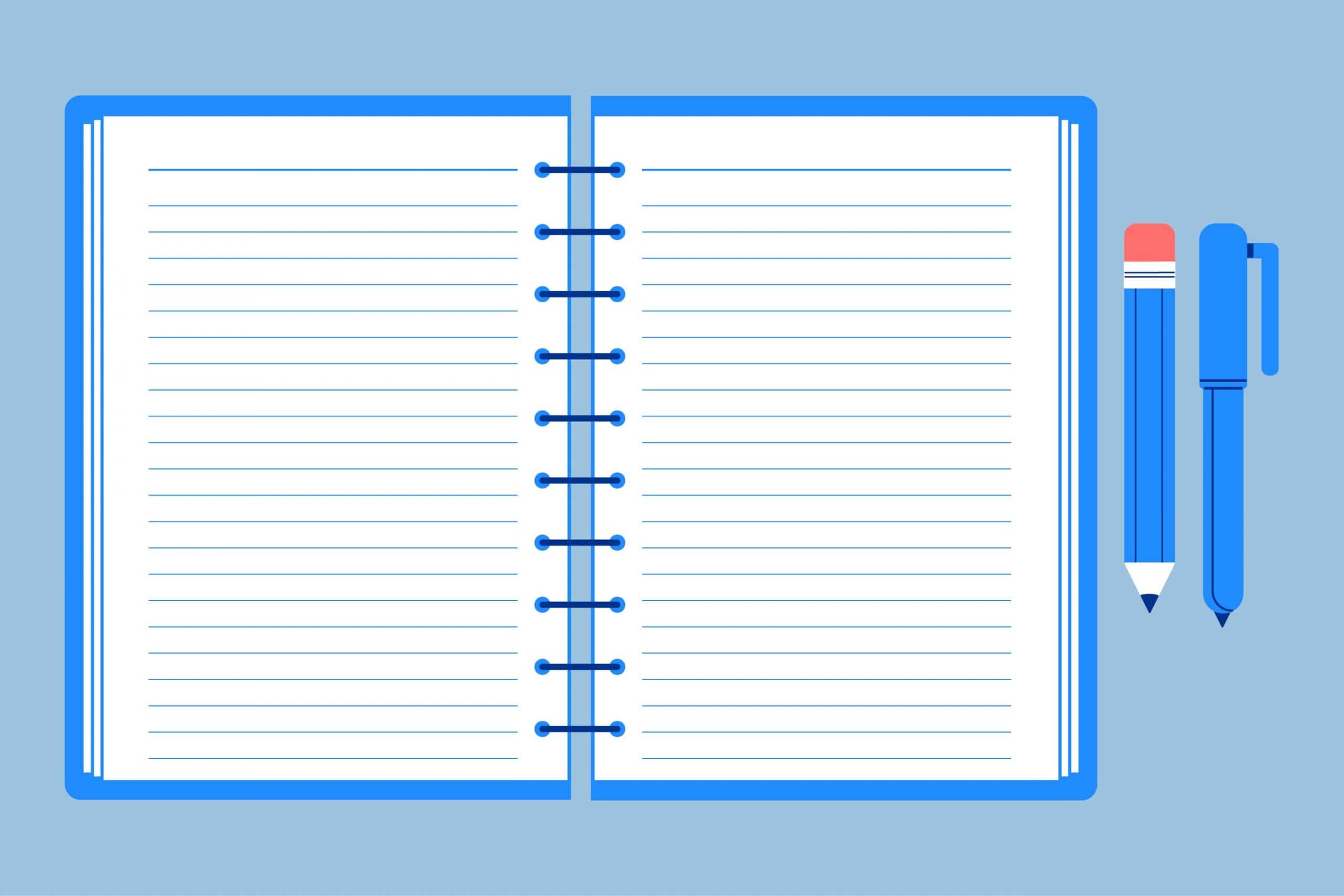Key Takeaways
- Impact of Sound on Sleep: Sounds, both subtle and abrupt, play a significant role in sleep quality. Environmental noises, ranging from appliances to outside traffic, can disrupt sleep cycles and even lead to health issues over time. Research suggests a link between nighttime noise exposure and cardiovascular disease.
- Individual Sensitivity: The effect of noise on sleep varies among individuals, with factors like age and brain rhythms influencing tolerance levels. Emotional noises, such as a baby’s movements, can be particularly influential. However, individuals can habituate to regular noises in their environment over time.
- Using Sound to Your Advantage: While certain sounds can disturb sleep, others, like white noise, can be beneficial. White noise machines or consistent background noise, when used consistently, can condition individuals to sleep through external disturbances. This positive association can lead to more restful nights and improved overall sleep quality.
Whether you are sensitive to bumps in the night or sleep like a rock, sound has the potential to affect your rest and your health.
It’s easy to overlook the significance of sensory cues during rest, as it can seem as though sleep makes us oblivious to the outside world.
However, think back and you can likely recall a time where a sudden sound woke you up or a noisy locale made it hard to doze off. In fact, temperature, smell, light, physical comfort and sound all have the potential to influence sleep according to recent research.
Sound appears to have both positive and negative influences, depending on types, noise level, personal preference and other factors. For example, gentle background noise can diffuse a noisy street, while a partner’s snoring or creaky pipes can result in restless nights.
Read on to see how sound influences sleep in both the short-term and long-term, and how to optimize your environment for better nights.
The Effects of Sound During Sleep
Sounds that are trivial during the day can become bothersome at night, especially when they are abrupt. Even if you don’t fully wake up, noises can arouse you slightly and affect sleep cycles. There are many potential sources of sleep stealing sounds, ranging from things in the home like appliances, televisions, pets and other people, as well as outside sounds like storms, traffic and urban city noise.
One research review Verified Source National Library of Medicine (NIH) World’s largest medical library, making biomedical data and information more accessible. View source published in the Noise & Health journal suggest studies show a link between nighttime environmental noise exposure and cardiovascular disease, and that even low-level noises may impact health due to sleep disturbance.
Environmental noise, from things like road traffic, trains, planes, and wind turbines, is a significant policy issue for the World Health Organization. Research in Europe suggests that noise disturbance can cause real health side effects, and the WHO estimates Western Europeans lose one million years of healthy life due to traffic-related noise. Sounds as low as 30 decibels can affect rest, and by comparison, busy traffic comes it at 70 dB while a subway registers 90 dB and an airplane taking off comes in at 100 dB.
The intensity and severity of which noise impacts sleep is somewhat individual though, and some people are more sensitive than others. One study found that brain rhythms play a role in people’s ability to tolerate noise. Generally, noises are most likely to wake people during stage 2 sleep, the light, non-REM cycle we spend about half the night in. Age also factors in, with studies showing children and elderly people to be most vulnerable to sound disruptions.
Emotional noises may perhaps be even more influential, with research showing Verified Source ScienceDirect One of the largest hubs for research studies and has published over 12 million different trusted resources. View source evidence that mothers are easily woken up by their infants’ movements and that a person’s brain shows more activity to hearing their name than to beeps during sleep.
Over time, people can also become used to, or “habituated to”, noises in their environments, resulting in less effect over time. One study Verified Source National Library of Medicine (NIH) World’s largest medical library, making biomedical data and information more accessible. View source found that people experienced fewer cortical arousals (changes in brain waves) on subsequent days when exposed to traffic sounds at night, however, cardiac arousals (heart rate) did not habituate during the study.
Using Sound to Your Advantage
Although much of the research focuses on learning about detrimental side effects of sound, it can have a positive affect on sleep as well. Sounds like white noise, for example, can moderate intermittent noise levels and provide a consistent backdrop for more peaceful rest.
Pediatric sleep consultant Jennifer Schindele suggests that environmental noise and new sounds can indeed disrupt sleep, however she finds that sound machines can help both kids and adults sleep well:
“I often find that the addition of low to moderate level white noise can be very helpful to the sleep of my young clients. White noise works to block out normal everyday environmental noises that could cause a person of any age to startle awake or keep them awake in the middle of the night where solid and consistent sleep is needed the most.”
“Finding a good sound machine that offers white noise or gentle rain as sound options can help improve anyone’s sleep. In fact, I often learn that the parents of the children I work with begin to use white noise in their own bedrooms to help improve the quality of their sleep. It is quite remarkable how one small change can make such an incredible difference in the ability of the human body to attain healthy sleep.”
Dream Team Baby founders Conner Herman and Kira Ryan also express support for sound machines, particularly for establishing healthy sleep routines in children:
“When we are in lighter stages of sleep, sounds around us can more easily interfere with sleep. During these sleep stages, normal external noises, such as a phone ringing, a door slamming, or a dog barking, have a higher chance of waking us up. If you have a child who has a difficult time falling asleep, the last thing you want is for him or her to be woken prematurely.”
“One way to use sound to your advantage is to play white noise the entire time your child is asleep. White noise will mask potentially troublesome external noises and help your child remain asleep longer. If used consistently, white noise also has another benefit. It can become a positive sleep cue. Your child will hear the noise at sleep time, associate it with sleep, and his or her body will involuntarily relax into sleep.”
The idea of sound machines or white noise to condition external noises is supported by science, too. One team of researchers found white noise helped reduced awakenings to common intensive care unit sounds, Verified Source ScienceDirect One of the largest hubs for research studies and has published over 12 million different trusted resources. View source by smoothing the difference between baseline and peaks in noise. An older study Verified Source National Library of Medicine (NIH) World’s largest medical library, making biomedical data and information more accessible. View source of infants found that 80% fell asleep within five minutes in the white noise group, compared to only 25% in the control group without noise.
Controlling Sounds In Your Environment
Sound and noise are a fact of life, and many types are simply unavoidable. However, there are a few helpful steps you can take to minimize noise pollution during rest and help your family sleep better.
If you notice that you wake up often during the night or you feel less than well-rested in the morning, consider tracking your sleep using an app like SleepBot or Sleep Cycle. Both of these apps and many others record any disruptions while you sleep, which can give you insight into noises that may be waking you up or disturbing your slumber.
Minimizing Inside Noises
- Use white noise to create a consistent gentle soundtrack if bumps in the night bother you. It can be particularly helpful for children whose bedtimes are generally earlier than their parents’. White noise can come from sleeping with a fan, sound conditioner, white noise machine, air purifier or other soothing sound. However, be mindful of the volume especially for babies — a white noise machine shouldn’t be too loud. Experts vary, but below 50 Verified Source American Academy of Pediatrics (AAP) Professional society for pediatricians that aims to improve children’s health everywhere. View source to 65 decibels or so is considered maximum. For reference, that’s similar to or quieter than a soft shower or normal conversation.
- Run dishwashers and laundry machines well before bedtime.
- Consider turning ice makers off if bedrooms are near the kitchen.
- Place large bookcases against walls to act as a buffer. For example, between a living room and bedroom or between a wall shared with neighboring apartments.
- Turn televisions off before bedtime (or turn volume down and set a timer).
- Turn loud sounds off on all smartphones and devices before bed to minimize disruptions.
- If a partner’s snoring is what’s keeping you up, check out noise cancelling ear buds. Don’t forget though, excessively loud snoring or snoring that sounds like the person stops breathing can be a sign of sleep apnea, so it’s also something they should bring up with a doctor who can recommend other solutions.
Minimizing Outside Noises
- Place your bed away from outside walls when possible.
- Make sure your windows and doors aren’t drafty. Seal any gaps in window frames with an appropriate insulating foam. Use door draft minimizers on either outside or indoor doors with gaps.
- Double-pane windows and heavy blinds can dampen some street noise, and there are also different types of acoustic tiles and insulation that could further reduce noise levels from outdoors.
- Utilize white noise or consistent background noise the same as you would for indoor noises.
- Try earplugs if you live in a very loud space.
- One longer term solution is to plant trees and shrubs close together as a noise buffer.
- When you’re travelling, pack earplugs or noise cancelling headphones to make sleep easier in your new environment. Ask for a quiet room away from entry ways or a corner room when you book your hotel. A travel sound machine or your smartphone can also be handy, as several phone apps also have white noise and nature sounds designed to promote sleep.
Do you live in a noisy city? How do you notice sound impacting your sleep, or what best helps you sleep through the night?
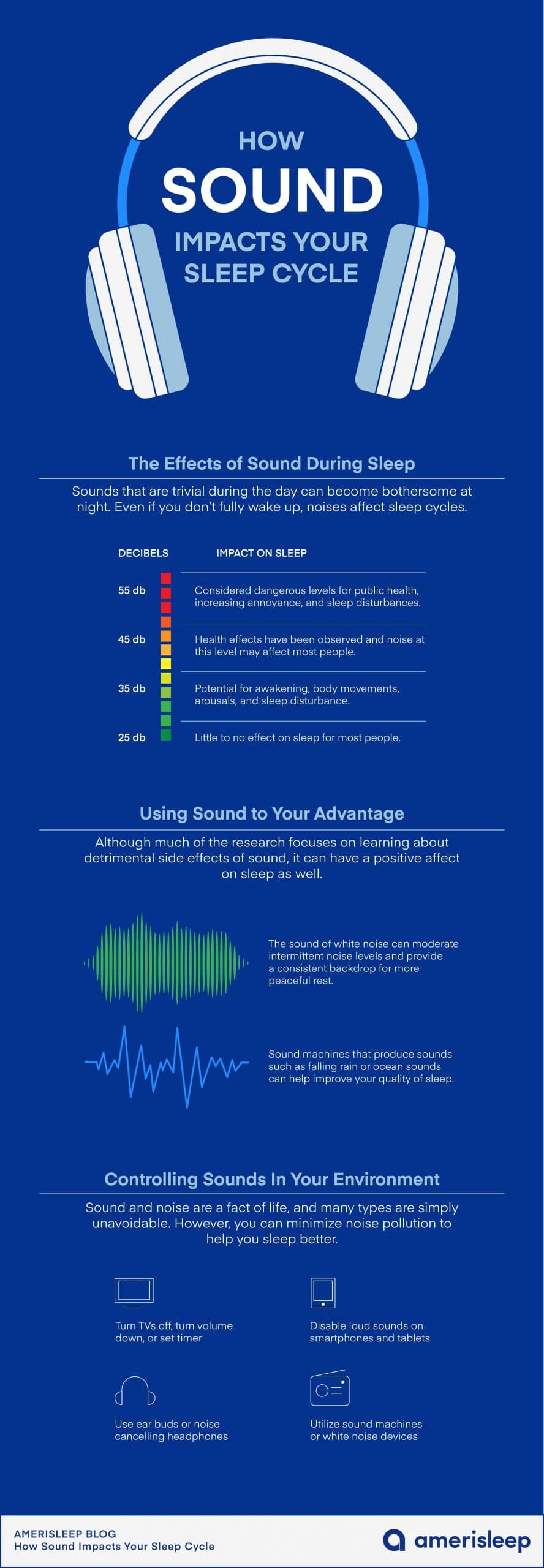
About the author
Rosie Osmun, a Certified Sleep Science Coach, brings a wealth of knowledge and expertise to the health and wellness industry. With a degree in Political Science and Government from Arizona State University College of Liberal Arts and Sciences, Rosie's academic achievements provide a solid foundation for her work in sleep and wellness. With over 13 years of experience in the beauty, health, sleep, and wellness industries, Rosie has developed a comprehensive understanding of the science of sleep and its influence on overall health and wellbeing. Her commitment to enhancing sleep quality is reflected in her practical, evidence-based advice and tips. As a regular contributor to the Amerisleep blog, Rosie specializes in reducing back pain while sleeping, optimizing dinners for better sleep, and improving productivity in the mornings. Her articles showcase her fascination with the science of sleep and her dedication to researching and writing about beds. Rosie's contributions to a variety of publications, including Forbes, Bustle, and Healthline, as well as her regular contributions to the Amerisleep blog, underscore her authority in her field. These platforms, recognizing her expertise, rely on her to provide accurate and pertinent information to their readers. Additionally, Rosie's work has been featured in reputable publications like Byrdie, Lifehacker, Men's Journal, EatingWell, and Medical Daily, further solidifying her expertise in the field.
View all posts